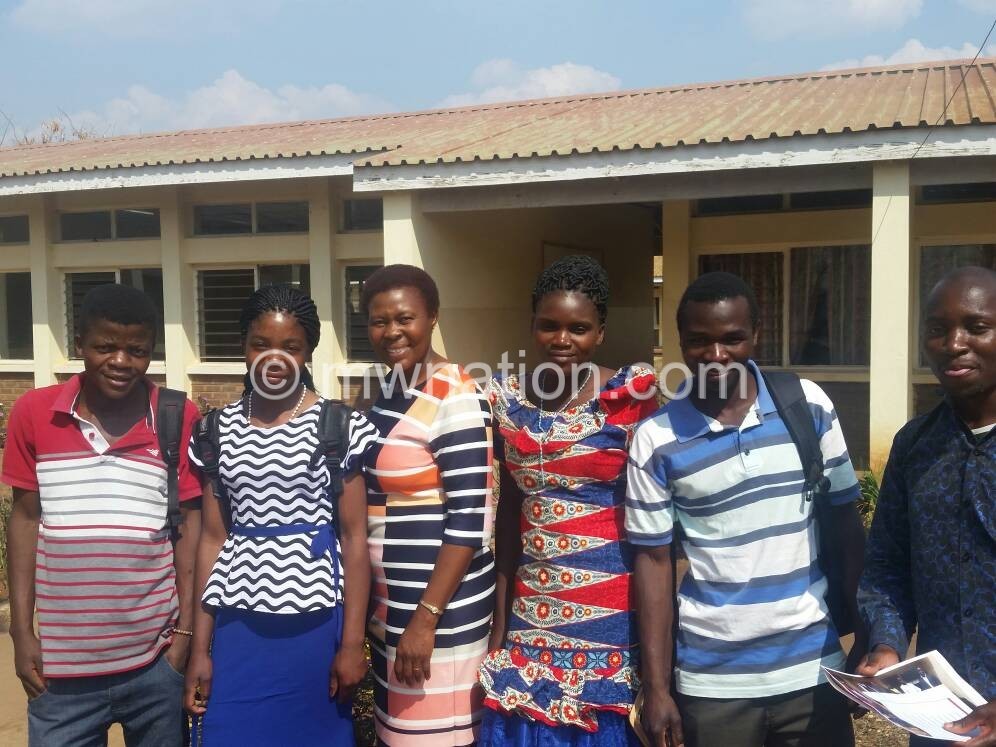Welding shattered futures
When we met recently at Nasawa Technical College in Zomba, Kumbukani Kamwendo sounded optimistic to make up for the lost half decade.
“Around this time last year, I had no job, no skill, no hope and nobody to support me,” said the 25-year-old from Musisi Village, Traditional Authority (T/A) Chikumbu in Mulanje.

He was among 10 young Malawians from poor background who completed training in metal fabrication sponsored by Global Aids Interfaith Alliance (Gaia).
“Now the future looks beautiful and my life is already changing,” he said. “I can make chairs, tables and other furniture for sale. I can do a lot with my skills. I see myself making money.”
His hopes for a bright future were almost dashed when he completed secondary education in 2012.
He spent five years staying idle in the village as he was not selected to any public university. Sadly, private colleges were too costly for his poor family.
In fact, his parents could not meet his basic needs. His secondary education was funded by Gaia who champion HIV and Aids response in the remote tea-growing district where almost 18 in every 100 people are living with the virus.
“Stuck at home, unskilled and jobless, I asked myself: Why did Gaia waste its money on my education? There seemed to be no way out,” he said.
Kumbukani’s uncertainties personify the dilemma of many disadvantaged learners on scholarships bankrolled by non-governmental organisations.
They envisage the scholarships giving every child a shot at secondary education, but often leave the learners midair with no support for tertiary education.
The situation is worse for orphans in rural areas where 81 percent of Malawians live. Poverty is rampant. So are early marriages. Role models are few. Information about existing educational and skills development opportunities is almost nonexistent. At worst, technical and vocational training centres are far away.
It is against this background that Gaia stepped in to support the youth from disadvantaged families.
Gaia senior programmes coordinator Joyce Jere says: “For years, Gaia has been supporting learners in primary and secondary schools in Mulanje. We support over 1 000 students in secondary schools across the district.
“But their main worry is: Where do we go from here? They cannot afford tertiary education. When these ones asked for training in vocational training, we responded accordingly.”
Some of the trainees, identified from youth clubs, come from parentless families, child-headed households and those with a single parent.
Most of them set off with an ambitious vision and necessary tools to set up shops in their rural areas where they can train and employ their peers.
“Loafing pains. I don’t want anyone to go through what I endured. I married quickly because I didn’t know what lay ahead. I want to help girls acquire gainful skills because many people in my area on the border between Malawi and Mozambique think vocational jobs are only meant for their male counterpart,” says Lauryn Master, 24, from Mabuka in Mulanje.
Her jobless parents, who rely on seasonal farming on a small plot where yields have been falling for years due to bleached soils and climate shocks, had seven children. They struggled to pay for her tuition at Vonkeni Community Day Secondary School.
Lauryn was on the brink of dropping out when Gaia listed her for the life-changing scholarships.
“Girls’ lives can only get better if they have quality education and relevant skills. It is the only way we can live without entirely depending on men. Sometimes, girls and women end up in risky sexual practices, including prostitution, because they have no skill and nothing to do,” she explains.
Through skills development, Gaia hopes to put the youth out of harm’s way in times of HIV and Aids.
“In our programmes, Gaia takes a 360 degrees approach to HIV and Aids,” says Jere. “If the youth acquire skills that can earn them a decent living and put them to good use, they will spend more time doing business and less on risky behaviour, including alcoholism and transactional sex which expose them to HIV infections.”
Nine out of every 100 people in the country are living with HIV. Young people are particularly at risk and affected due to early sexual activity and marriage, with 50 percent of new HIV infections affecting 15 to 17 years old in Malawi
The youth, aged 10 – 35, account for 60 percent of the population of Mulanje.
“The prevalence of HIV in the tea-growing district is very high and the youth are mostly entangled in a sex web which not only increases the likelihood of dropping out of school, but also unintended pregnancies, sexually transmitted infections and HIV,” says district youth officer Charles Mphaya.





